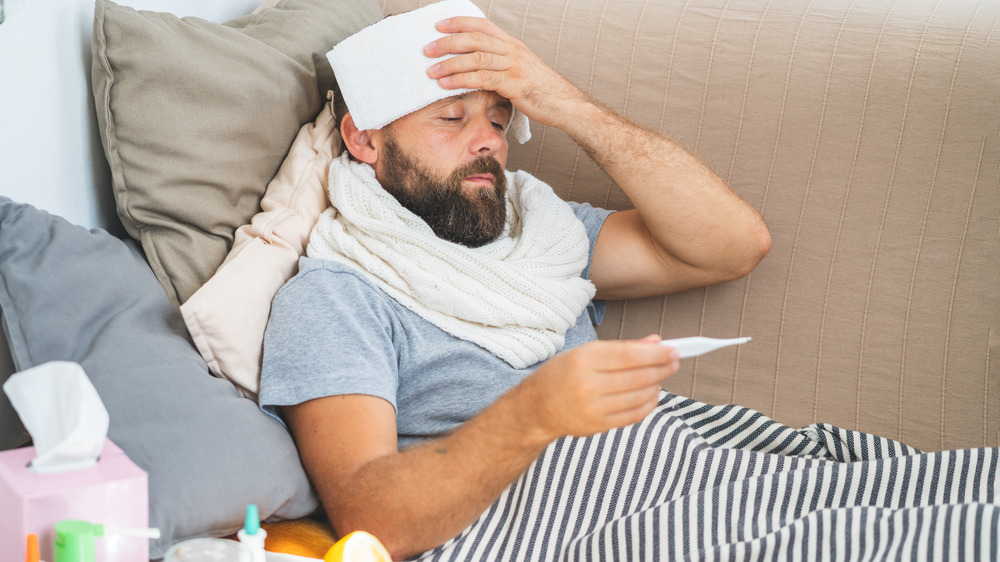What To Do If The COVID-19 Vaccine Gives You A Fever
The COVID-19 vaccine was a major innovation in health science, but like most vaccines, it can cause a few side effects in some people. The Centers for Disease Control report that some people are complaining of pain, redness, and swelling at the site of the injection, as well as systemic reactions like fatigue, headache, muscle pain, chills, fever, and nausea.
Getting a fever is particularly uncomfortable, however, and can be dangerous if it gets too high. What's the best way to treat a fever caused by the COVID-19 vaccine?
The good news is that the side effects, including fever, mean that the vaccine is working, and your body is building immunity to COVID-19. That's not to say that you're not building immunity if you don't get side effects. In clinical trials, only about 50 percent of people who received the vaccines experienced any side effects at all, according to Bustle.
When to take medication for a vaccine-induced fever
According to GoodRX, among people who received the Moderna vaccine in clinical trials, only about 19 percent of those 18-64 years old experienced fever (defined at a temperature above 100.4 degrees). Among people over the age of 65, the rate was 10 percent. For the Pfizer vaccine, about 16 percent of those 18-55 years old and 11 percent of those over 55 reported fever. Fever has also been noted by Johnson & Johnson as a side effect of its single-dose vaccine.
The CDC recommends treating fever by drinking plenty of fluids and dressing lightly. If you have a fever over 102.2 degrees, you can treat it with Tylenol, ibuprofen, or aspirin (via Mayo Clinic). Only about 2 percent of people experienced high fevers in clinical trials.
Dr. Sanjheev Jain, of Columbia Asthma and Allergy Clinic, told Bustle that fever will usually occur the first day you receive the vaccine and alongside other symptoms. If you're concerned about your side effects, however, don't hesitate to contact your doctor. Dr. Jain advises, "If you develop additional symptoms not associated with the vaccine such as neck pain, diarrhea, shortness of breath, or cough, then you should follow up with your provider for further assessment."


